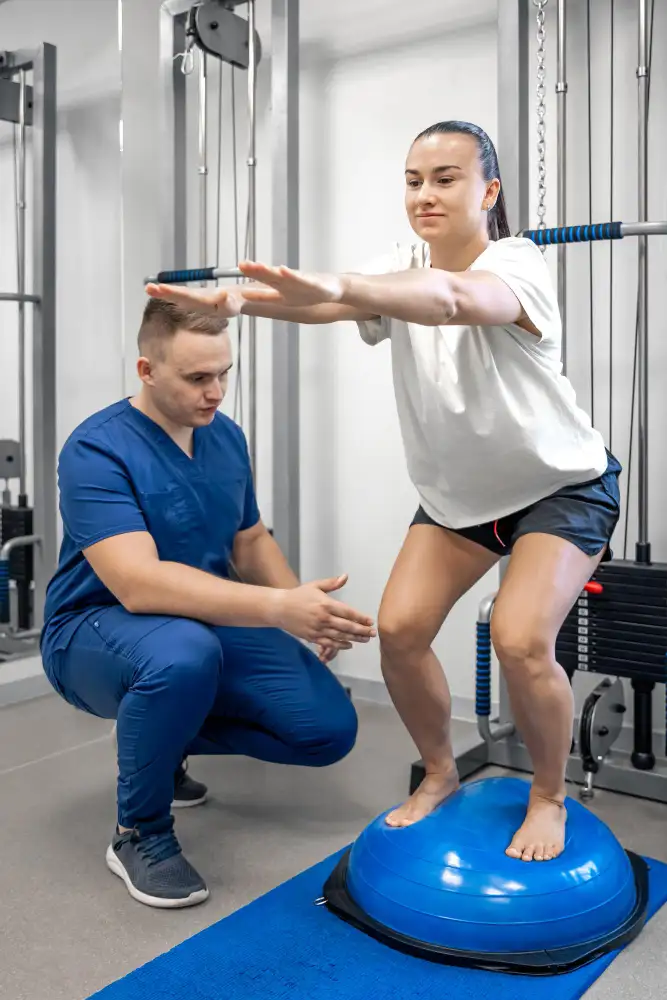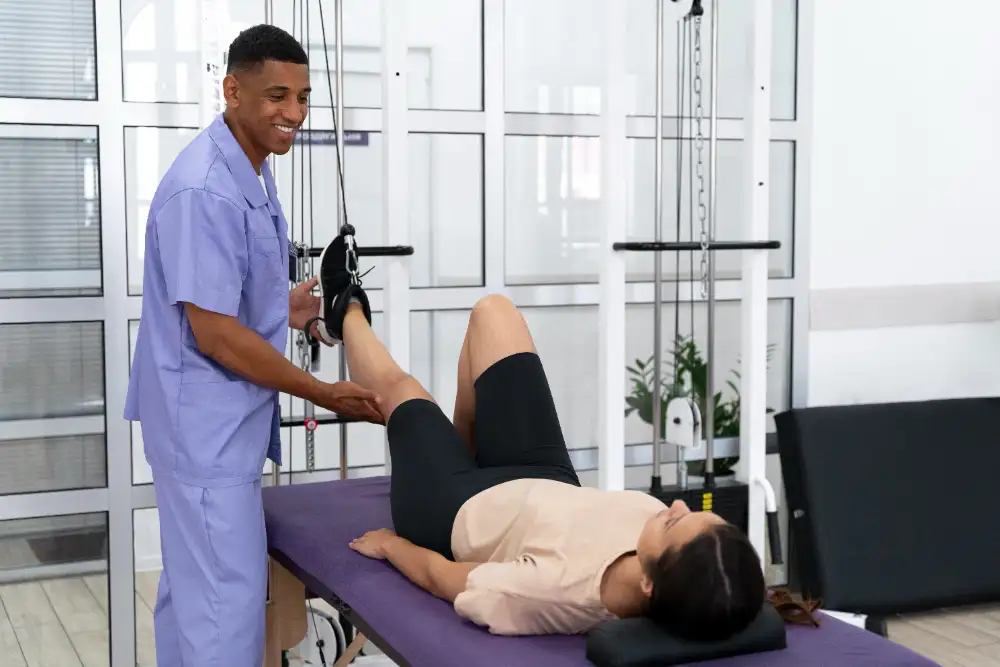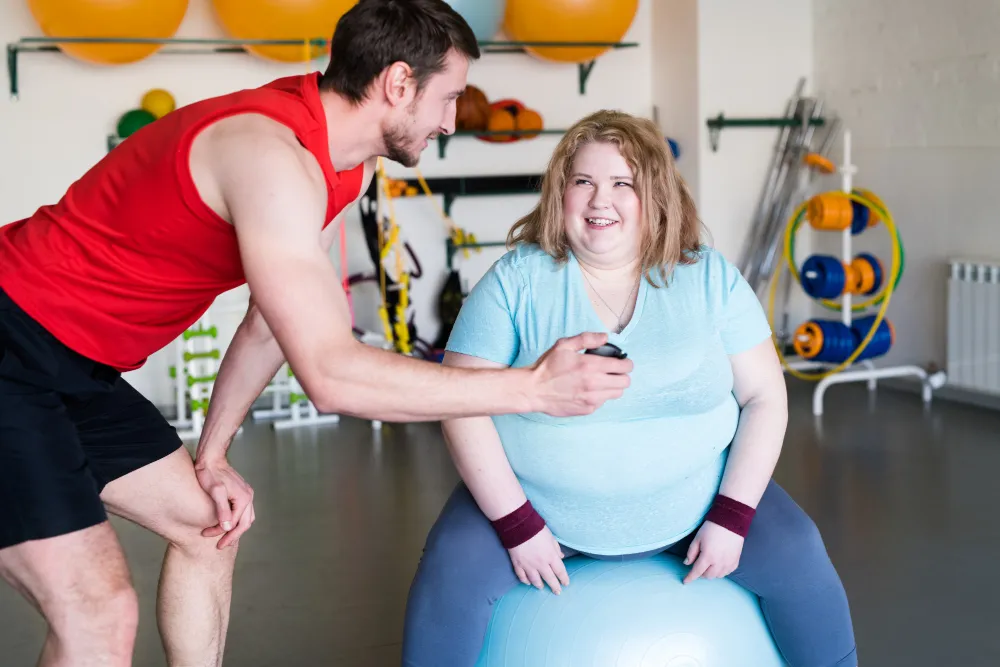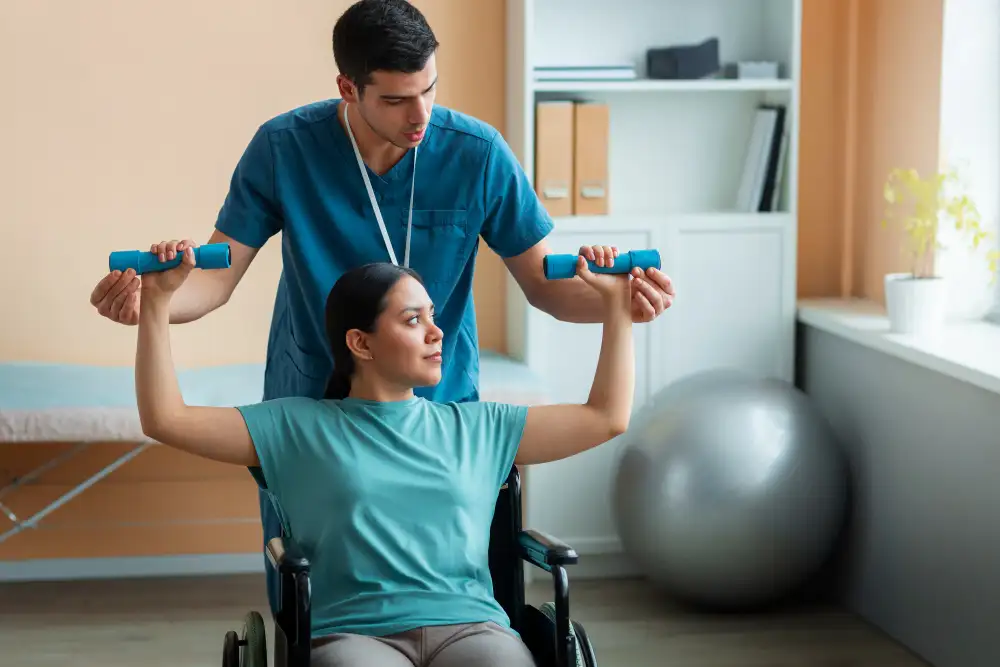
NDIS physiotherapy provides tailored support based on your individual physical and functional goals. Below are some of the common physiotherapy services available to NDIS participants across Melbourne.

Before getting started, the physiotherapist will take time to understand how your body moves. They’ll look at things like your posture, strength, and balance to see what’s working well and what might need support. From there, they’ll work with you to set goals that make sense for your daily life.

You’ll be supported with structured exercise programs tailored to your ability level. These exercises aim to improve strength, balance, endurance, and flexibility—helping you move more freely and with less effort.

Your physiotherapist may use hands-on methods like joint mobilisation, muscle stretching, and soft tissue massage to reduce stiffness, relieve pain, and improve your range of motion.

Living with long-term pain can be difficult. Physiotherapists use a range of evidence-based strategies—such as pacing, movement therapy, and gentle manual techniques—to help reduce discomfort and improve your day-to-day function.

You’ll work on everyday tasks like getting dressed, moving between your bed and chair, or preparing meals. These sessions help you do more on your own and feel more confident in daily life.

If you need assistive devices, your physiotherapist will help assess, recommend, and adjust mobility aids such as walkers, crutches, or wheelchairs. You’ll also be shown how to use them correctly to maximise safety and comfort.

For people with conditions like stroke, multiple sclerosis, cerebral palsy, or Parkinson’s disease, physiotherapy can support movement control, reduce muscle tightness, and promote independence through targeted rehabilitation.

If you experience breathing difficulties due to conditions like COPD, asthma, or neuromuscular disorders, your physiotherapist can teach you breathing exercises, airway clearance techniques, and energy-saving strategies to support better lung function.

NDIS physiotherapy is a personalised support that helps you improve movement, build strength, and stay independent if you live with a disability or chronic health condition. It’s delivered by qualified physiotherapists who understand how different conditions affect your daily life—physically, emotionally, and functionally.
Each physiotherapy plan starts with a detailed assessment. The physiotherapist looks at how you move, what tasks are difficult, and what you want to improve—whether that’s walking, reducing pain, managing fatigue, or using stairs safely. From there, they design a therapy plan matched to your goals and NDIS funding.
Sessions may include strength-building exercises, balance training, joint mobilisation, or education on posture and safe movement. Some physiotherapists also support you with equipment recommendations, like walking aids or braces, if they help improve safety and mobility.
Progress is reviewed regularly, and reports are often provided to support NDIS plan reviews. The aim is long-term improvement—not just temporary relief—so you can stay active and independent in everyday life.
NDIS physiotherapists help people improve their physical function through exercise, movement strategies, and practical therapy. They’re not just focused on injury recovery. Instead, they work with people living with long-term conditions like cerebral palsy, multiple sclerosis, stroke, brain injury, autism, or genetic syndromes.
A physiotherapist might help a child with coordination, a teenager with postural control, or an adult with balance and joint mobility. They can also create home exercise programs, recommend assistive technology like walkers or orthotics, and track your progress toward NDIS goals.
Physiotherapists often work alongside occupational therapists, speech pathologists, and support workers. The aim is to make day-to-day life easier—whether that means getting out of bed, walking to the shops, or participating in school or work.

NDIS physiotherapy is typically funded under Capacity Building – Improved Daily Living. In some cases, it may also be claimed under Core Supports if it helps with daily activities or behaviour support.
To access physiotherapy through the NDIS, you must have it listed as a support category in your plan. You don’t need a referral, but you do need clear goals that align with the therapy—like increasing independence, improving movement, or reducing pain.
Funding is usually set aside for a certain number of hours or sessions. Your physiotherapist should work with you to create a service agreement and track your outcomes through regular reports. These reports are important when it comes time for a plan review.

An NDIS physiotherapy session usually begins with a detailed assessment. The physiotherapist takes time to understand how your body moves, what physical tasks are difficult, and what goals you’re working toward. They may look at how you walk, sit, get up from a chair, climb stairs, or carry out everyday activities. If needed, they might assess joint range, balance, coordination, or muscle strength.
Once they understand your baseline, the physiotherapist creates a plan that suits your needs. This plan might involve:
Sessions can take place at home, in a clinic, or in a community setting—depending on what works best for you and what the provider offers. Progress is tracked over time, and therapists often provide written reports that help justify your therapy needs during plan reviews.

The NDIS covers various physiotherapy services that help you achieve your goals as outlined in your NDIS plan.
Commonly funded physiotherapy services include:
Mobile physiotherapy under the NDIS involves receiving physiotherapy services at your home or another location of your choice, rather than attending a clinic. It is designed to make therapy more accessible and convenient, especially if traveling is challenging or if you prefer therapy in a familiar setting.
Under the NDIS, you have full choice and control over your physiotherapy provider. If your plan is NDIA-managed, you just need to choose a physiotherapist who is NDIS-registered.
The NDIS does not set specific limits on physiotherapy sessions. Your funding depends on your individual goals, treatment needs, and what is considered reasonable and necessary, with your physiotherapist and plan coordinator helping you determine the right session frequency.
You don’t need a GP referral to access physiotherapy under the NDIS. However, your physiotherapist may work with your GP or other health providers to ensure you receive the best possible care.
Physiotherapy is funded under the Capacity Building supports budget, specifically in the Improved Daily Living category. Your funding covers treatments that help you improve movement, manage pain, and increase independence.
You have the flexibility to change physiotherapy providers at any time if they are not meeting your needs or supporting your goals effectively. The NDIS allows you to choose a provider who best aligns with your requirements.
The NDIS can cover physiotherapy sessions at your home if traveling to a clinic is difficult for you. Home-based therapy allows you to receive treatment in a familiar environment while working towards your NDIS goals.
NDIS physiotherapy is available for participants of all ages, including children, as long as it aligns with their plan and goals. Physiotherapists work with individuals at different life stages to support mobility, strength, and independence.